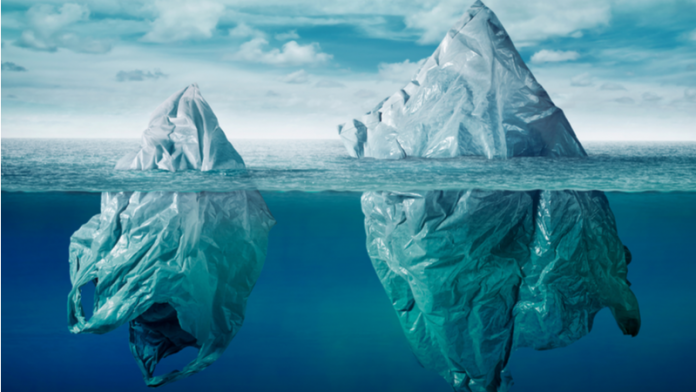Muscat: The Sultanate of Oman will ban the use and distribution of single-use plastic bags for shopping and other activities from January 2021.
Brought about by a Ministerial decision issued in March 2020, the single-use plastic bags that were once widely distributed at shopping centers must be switched in favour of more environmentally-friendly options.
Article 1 of the decision prohibits companies and institutions from using single-use plastic shopping bags that are used and disposed of after a single use in order to preserve the environment.

This, as per an Environmental Authority (EA) campaign, includes bags made of cloth, paper, and other organic materials that are “available in commercial stores”.
Elucidating the dangers of plastics, EA stated: “Plastic bags contain high levels of lead. When exposed to sunlight, toxins that are harmful to our health are emitted from the bags.”
Why Are Single-Used Plastics Banned?

1) Animals – both terrestrial and aquatic varieties – unknowingly consume plastic bags, and suffer from serious health problems. Animals that swallow plastic bags suffer from intestinal obstructions, which typically lead to a long, slow, and painful death.
2) Bags end up in landfills, oceans, seas, and lakes. They end up strangling animals, filling our sewer systems, and blowing throughout the environment. Up to 80 percent of ocean plastic pollution enters the ocean from land.
3) It takes 500 (and sometimes 2,000) years for a plastic bag to degrade in a landfill. Unfortunately, these bags don’t break down completely but instead photo-degrade, becoming microplastics that absorb toxins and continue to pollute the environment.
4) Production of plastic takes 60-100 million barrels of oil from the world’s petroleum reserves. Therefore, plastic contributes significantly to the depletion of this valuable resource, making the prices of petroleum products to rise every passing day.
5) Ingredients of plastic bags include a plethora of neurotoxic, carcinogenic, and hormone-disruptive chemicals. Some of these chemicals are also released as by-products of plastic production. When released, they eventually end up in our ecosystem through the land, water, and air pollution.
6) The plastic bags in the dumpsite will normally release chemicals that seep into the ground, ending into the groundwater reservoirs. Then, the detrimental effects of plastics would be passed through the ground to our bodies through the plants we consume and the water we drink.
7) Plastic bags don’t only pollute our water sources, they also take a lot of water from these sources during their production. You’ll need about 22 gallons of water to produce one pound of plastic. There’s no need to waste so much water manufacturing harmful plastics.
Sources: EarthEclipse, Greener Ideal, ThankYourBody






